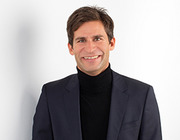New forms of democratic participation are gaining ground rapidly. The EU has reacted to its citizens’ increasing demands for participation. Citizens can take an active part in policymaking at the European level, for example by participating in the European Citizens’ Initiative, online consultations by the Commission, or European Citizens’ Dialogues.
A wide range of different citizens’ consultations began in spring 2018 on the instigation of the President of the French Republic, Emmanuel Macron, with the support of the other European heads of state and government and the European Commission. As part of this debate, the European Commission supported by the Bertelsmann Stiftung and other organisations created the "The Citizens’ Panel on the future of Europe".
The Citizens' Panel on the future of Europe, which took place between 4 and 6 May 2018, brought together 100 citizens from all 27 EU Member States to discuss the future of Europe. Participants from all over Europe were selected at random in order to represent the diversity of the EU and its citizens. The Bertelsmann Stiftung acted as an academic partner and was responsible for evaluating the event.
The aim of the Citizens' Panel was to develop 12 questions for an online survey on the future of Europe – created by EU citizens for EU citizens. The online survey was launched in all EU languages on 6 May 2018. Initial results are scheduled for discussion by heads of state and government in December 2018. A definitive report will be submitted on 9 May 2019 during the EU27 Summit in Sibiu, Romania.





